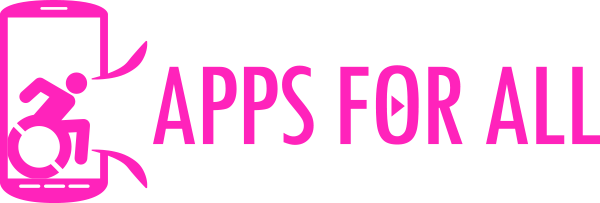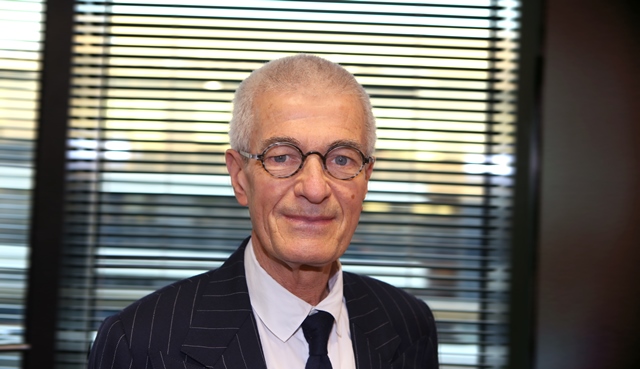Key Dates
2024 round now closed.
> View more information about our Grants Program
We can help. Contact us:
grants@accan.org.au
or phone 02 9288 4000
Subscribe to Grants Program mailings
 The Government has announced delays to the start date of cost information and usage notifications for mobile resellers. The international mobile roaming warnings were due to begin in May 2016, but have been pushed back until 2018.
The Government has announced delays to the start date of cost information and usage notifications for mobile resellers. The international mobile roaming warnings were due to begin in May 2016, but have been pushed back until 2018.
Read more: International roaming usage notifications delayed
Write comment (0 Comments)ACCAN recently submitted to the ACCC regarding an authorisation application for members of the Telco Together Foundation (TTF) to work collaboratively to reduce modern slavery.
The authorisation would allow TTF members to engage in conduct that would normally be viewed as anticompetitive and illegal. Under the authorisation, collaborative conduct would be allowed in relation to specific activities necessary to identify and address modern slavery within telecommunications industry supply chains.
Read more: Telco Together Foundation Modern Slavery authorisation application
After a small but respectable drop in mobile bill shock due to usage notifications shown in the ACMA's Spend Management Tools and Alerts Survey 2015, further gains need to be found through the introduction of real time notifications. Currently these warnings can be up to 48 hours out of date by the time consumers receive them. With high excess usage charges, you can rack up a significant debt without even realising it.
Currently Telstra is the only telco to announce real time usage notifications. The ACMA research showed that delays in receiving information are "the major cause for dissatisfaction with the alert system" and this is where consumers can get caught out. ACCAN is calling on all telcos to implement real time usage alerts so consumers know when they are approaching their limit and as soon as they have reached a limit. This would allow them to more easily manage their usage and avoid expensive excess charges.
Read more: ACCAN calls on all telcos to introduce real time usage alerts
ACCAN has today released the 2016 ACCAN Grants Guidelines ahead of the Scheme's opening on Monday 8th February, 2016. The Scheme will be accepting applications for five weeks: from 8th February until 15th March, 2016 (please note the earlier closing round this year, due to an earlier Easter).
The ACCAN Grants Scheme funds projects that work towards a telecommunications market that is fair and inclusive for all – a market which is available, accessible and affordable. Projects focus on developing research, representation, or educational tools that address issues for telecommunications consumers in Australia.
If you have a great idea for a project which relates to a systemic and ongoing issue faced by phone or internet consumers, get in touch with us to chat about project ideas. The best applications are those that have consulted with ACCAN and have a thorough understanding of the work we do and the current policy issues we engage with.
Read more: 2016 Grants Scheme Guidelines released today
Write comment (0 Comments)Nbn Co sought feedback on the second consultation paper of its wholesale pricing review. Earlier in 2021, ACCAN provided feedback to its first consultation paper.
In our response to nbn Co’s second consultation paper ACCAN explained that we would not like to see wholesale costs for residential customers increase, due to the flow on impact that wholesale price increases can have on consumers. As such, in our response ACCAN supported:
Read more: NBN Co Pricing Review 2021 – Consultation Paper 2
The Australian Communications Consumer Action Network (ACCAN) welcomes the appointment of Senator Mitch Fifield to the role of Communications Minister. "As the peak organisation representing consumers and small business on telecommunications, we're looking forward to engaging with Minister Fifield on important issues that affect users," said ACCAN CEO, Teresa Corbin.
"We are pleased that Prime Minister Malcolm Turnbull has called for Australia to embrace the future and use digital disruption to our advantage. As a nation of early technology adopters, Australian consumers are keener than ever to join in and benefit from innovations that deliver better, more affordable and accessible communications choices."
For example, the establishment of the Digital Transformation Office is a great opportunity to be a world leader and ensure Government services are even more accessible as they move online. We are looking forward to helping ensure this initiative works to overcome any barriers for those unable to use or access the internet.
Read more: ACCAN welcomes appointment of new Communications Minister
 Residents of the Northern Illawarra area in New South Wales have been experiencing poor broadband services for some time. With a population of about 20,000, there are around 7,100 households in the area.
Residents of the Northern Illawarra area in New South Wales have been experiencing poor broadband services for some time. With a population of about 20,000, there are around 7,100 households in the area.
Despite being less than 55 kilometres from the centre of Sydney, a large number of the residents have access to broadband that is little better than dial up services. Some have no ADSL connection at all.
Frustrated by the lack of services, residents in the area have started a Facebook page – 2508+ Disconnected – to band together so they have a stronger voice to let telcos, ISPs and relevant stakeholders know about the lack of quality services available in the area. The 2508+ Disconnected group is an ACCAN organisational member.
Read more: Battling for better broadband
Write comment (0 Comments)ACCAN has responded to the Digital Transformation Agency’s consultation paper on proposed laws for the Australian Government’s Govpass digital identity platform.
ACCAN’s recommendations included:
- All privacy and consumer protection safeguards in the Digital Identity Framework must be enshrined in law to ensure compliance;
- The definition of Digital Identity should be harmonised with the revised Privacy Act to create a robust network of privacy protections for consumers; and
- A charging framework should not be introduced as it will discourage some non-government organisations from using the Digital Identity system.

The Australian Communications Consumer Action Network (ACCAN), along with Telstra, has today announced the winners of the second Apps For All Challenge at the 2015 ACCAN National Conference in Sydney. Launched last year, the Apps For All Challenge is Australia's only competition that awards the most accessible smartphone and tablet apps.
The Challenge awards apps in four categories. Winners were given a cash prize from Telstra and will receive promotion through Telstra's social media channels.
Read more: Winners of the 2015 Apps For All Challenge announced
 Dr Paul Paterson is the Chief Economist of the Bureau of Communications Research (BCR), an independent economic and statistical research unit within the Department of Communications and the Arts. We interviewed Dr Paterson to get some insights into his work in the communications industry and the scope of the BCR.
Dr Paul Paterson is the Chief Economist of the Bureau of Communications Research (BCR), an independent economic and statistical research unit within the Department of Communications and the Arts. We interviewed Dr Paterson to get some insights into his work in the communications industry and the scope of the BCR.
Dr Paterson, you have worked as an economist in the communications sector for over 20 years, what would you say is the biggest development in that time?
Yes, a long time with huge changes. In this time I have worked as an economic consultant, a regulator and as a senior executive in both the public and private sectors, in Australia and overseas. During this time I've seen many impressive developments in the comms sector, including the:
Read more: BCR Chief Economist, Dr Paul Paterson
Write comment (0 Comments)ACCAN responded to the Department of Infrastructure, Transport, Regional Development and Communications’ consultation on the circumstances in which Statutory Infrastructure Providers are exempt from the obligation to connect and supply premises with wholesale communications services, via telecommunication retail providers. The Department has been consulting on the draft Telecommunications (Statutory Infrastructure Provider – Circumstances for Exceptions to Connection and Supply Obligations) Determination 2020 that would give effect to these arrangements.
It is important that premises are only refused connection and supply of telecommunications services in limited and reasonable circumstances. ACCAN considers that generally the draft determination proposed by the Department ensures this is achieved.
The Australian Communications Consumer Action Network (ACCAN) has today kicked off its 2015 National Conference, Dollars and Bytes – Communications affordability now and tomorrow. The Conference, held in Sydney from 1-2 September, will explore the wide-ranging issue of affordability. Affordability of telecommunications services, along with accessibility and availability, are key focus areas for ACCAN.
Affordability is becoming increasingly important as access to telecommunications services is essential for full economic, social and cultural participation. The main method of communicating with many Government agencies is now through online channels. With the implementation of the Federal Government's Digital First Strategy, this is set to become even more widespread. The strategy will require all Government services and public interactions to be available online by 2017. The formation of the Digital Transformation Office (DTO) will help the Government implement this strategy. The inaugural DTO CEO, Paul Shetler, will deliver a presentation at the Conference.
Read more: ACCAN’s 2015 National Conference explores affordability issues
 A recent Disability Discrimination complaint lodged with the Australian Human Rights Commission against the former Communications Minister, now Prime Minister, Malcolm Turnbull was resolved last month with the Office of the Prime Minister committing to ensure all its future videos will now be accurately captioned prior to posting to the web.
A recent Disability Discrimination complaint lodged with the Australian Human Rights Commission against the former Communications Minister, now Prime Minister, Malcolm Turnbull was resolved last month with the Office of the Prime Minister committing to ensure all its future videos will now be accurately captioned prior to posting to the web.
The conciliated outcome with the Prime Minister's Office ensures that people who rely on captions will now have the same real-time access to information as the rest of the community.
Read more: Great outcome for consumers who rely on captions
Write comment (0 Comments)ACCAN recently made a submission relating to the draft AS/CA S042.1:2020 Requirements for connection to an air interface of a Telecommunications Network— Part 1: General. The aim of this Standard is to provide requirements and test methodology for customer equipment used in connection with a Public Mobile Telecommunications Service (PMTS) or Satellite Service.
In our submission ACCAN argued that there is a need for improved consumer education around making emergency calls from different types of customer equipment.
Read more: Requirements for connection to an air interface of a Telecommunications Network
Last week the Indigenous Remote Communications Association (IRCA) and the Australian Communications Consumer Action Network (ACCAN) hosted an Indigenous Focus Day in Darwin, Northern Territory. The event took place alongside the Broadband for the Bush Forum IV. It attracted 75 participants and focused on identifying the obstacles to digital inclusion and the opportunities that arise from being connected. Participants were representatives from the Indigenous community, as well as delegates from community organisations from across Australia.
The Focus Day consisted of an opening address from Joe Morrison, CEO of Northern Land Council, some shorter presentations and facilitated breakout sessions. Key themes explored were affordability, accessibility, awareness and appropriateness of telecommunications services. The breakout sessions featured speakers covering topics such as costs of phone plans, satellite internet services, broadband for schools and how technology is improving the lives of remote Indigenous communities.
Read more: Indigenous Focus Day explored obstacles to digital inclusion
 We have reached a point in modern society where we seem to go online for everything. To organise meals, book transport, pay bills, earn an income, vote, communicate and of course, obtain all sorts of goods and entertainment.
We have reached a point in modern society where we seem to go online for everything. To organise meals, book transport, pay bills, earn an income, vote, communicate and of course, obtain all sorts of goods and entertainment.
Yet, there are still some people who can't or won't go online. For some, a proxy internet user takes their place: someone who goes online on behalf of others. Usually an informal relationship, proxy users are an overlooked group of consumers. It is easy to assume that proxy users undertake practical internet activities, such as shopping or checking timetables, on behalf of others, but it could be that they undertake a much wider variety of activities altogether.
Read more: Going online on behalf of others
Write comment (0 Comments)In December 2020, ACCAN submitted to the Australian Attorney General’s Department Issues Paper consultation on the review of the Privacy Act 1988. Our submission aimed to ensure privacy settings empower consumers and protect their data, and we worked closely with privacy advocates in developing our response. The review is part of the Australian Government's response to the Australian Competition and Consumer Commission's Digital Platforms Inquiry.
A survey commissioned by the Australian Communications Consumer Action Network (ACCAN) found that real complaint levels are still high despite decreasing escalated complaints reported by the Telecommunications Industry Ombudsman (TIO). The survey found that 46 per cent of telco consumers reported having a problem with their phone or internet provider in the last year. This represents more than 8.5 million Australians. The survey was completed by Galaxy Research with 1100 respondents, representative of the Australian population. The 2015 survey repeated the questions of a survey ACCAN commissioned in 2010.
According to the survey, around one third of respondents (38 per cent) who had a problem with their phone or internet service, complained to their provider and were dissatisfied with the response from the telco. However, only nine per cent of these consumers escalated their complaint to the TIO. This suggests that phone and internet providers have not improved the proportion of complaints that are resolved. ACCAN is calling on the telcos to publish their complaint data so the problem areas can be identified.
[Watch on Youtube - Video will autoplay -
please note this video does not contain sound as it has
been produced for the Australian Deaf community]
Imagine watching an emergency broadcast when you are unable to understand what is being said. If you can't understand what is happening, then you will not have access to important, possibly life saving information.
This is a situation that Deaf Australians who are Auslan users may experience when watching emergency broadcasts when an Auslan interpreter, who is present at the emergency press conference, is cut out of the broadcast. Auslan is the first and often preferred language for many Deaf Australians. It is estimated that there are more than 10,000 Australians who use Auslan as their preferred1 2 language.
Read more: Emergency broadcasts and Auslan interpreters
Write comment (0 Comments)The Royal Commission into Violence, Abuse, Neglect and Exploitation of People with Disability recently sought submissions to its Promoting Inclusion issues paper. The aim of the issues paper was to gather information about what makes an inclusive society and what steps can be taken to promote a more inclusive society.
In ACCAN’s submission to this issues paper we explained that available, affordable and accessible digital communications technologies can facilitate a more inclusive and accessible society. We outlined the work we have undertaken in relation to the Ideal Accessible Communications Roadmap, and identified communications-related actions that could contribute to a more inclusive society.
The Australian Communications Consumer Action Network (ACCAN) has today announced the successful Grants Scheme projects for the 2015 Round. The ACCAN Grants Scheme funds projects which undertake research on telecommunications issues, represent consumers or create educational tools which empower consumers to derive the greatest benefit from telecommunications products and services.
The Grants Scheme is competitive and this year received 66 applications from a range of research, private sector and community organisations.
"This year's applications represented a fascinating blend of emerging technology as well as long-standing consumer challenges," said ACCAN Deputy CEO, Narelle Clark. "We congratulate the successful candidates and look forward to working with them on these tremendous projects."
 We know that electronic devices, such as microwaves, baby monitors and lamps, can interfere with Wi-Fi, but did you know that your Christmas lights could be causing interference as well?
We know that electronic devices, such as microwaves, baby monitors and lamps, can interfere with Wi-Fi, but did you know that your Christmas lights could be causing interference as well?
With families having extra downtime over the holidays or if you have family visiting you'll need a reliable internet connection to ensure everyone can get connected.
Our friends at the UK telecoms regulator, Ofcom, have published some troubleshooting tips that may be helpful if you're experiencing interference from electronics or your Christmas lights over the festive season.
If these tips don't help solve your Wi-Fi issues we recommend that you contact your provider to discuss the problem with them and get a resolution.
Read more: Are Christmas lights affecting your Wi-Fi?
Write comment (0 Comments)ACCAN made a submission in response to the ACCC’s proposed enhancements to the Broadband Speeds Claims – Industry Guidance. ACCAN submitted that to avoid misleading the consumer telco retailers should:
- Use the lowest end of any speed ranges provided by a wholesale product in off-peak speed marketing information, and RSPs should inform consumers if the off-peak speed changes;
- Not advertise ‘burst speeds’ – off peak high speeds that are only occasionally available for short periods – as off-peak speeds;
- Be transparent about the suitability and quality of their plans and products for online gaming, taking into account periods when the broadband network has high traffic demand;
- Provide faster connection speeds in plans for online gaming to deliver a good customer experience, particularly in current circumstances where COVID-19 work from home and home schooling restrictions are increasing the strain on the broadband network;
A new study launched today examines the barriers faced by many Deafblind consumers when accessing customer service call centres. The Assisted Access study by Able Australia, was funded through the ACCAN Grants Scheme and aimed to develop a model for Deafblind consumers to access their telco's customer service with ease and security.
Consumers who are Deafblind have both a significant hearing and vision loss. Current information and privacy practices usually require the customer to interact using their own voice – not a facilitator's – and therefore prevent these consumers from easy phone access to their telcos. Text based alternatives are often also inadequate when using specialised screen set ups and braille based systems.
Read more: Study proposes a new model for Deafblind access to telco services
